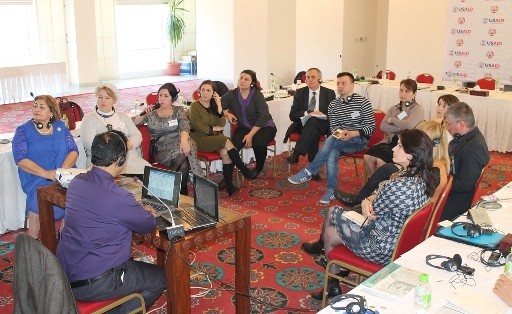
For Immediate Release
Dushanbe, Tajikistan, February 22 - 26 – The United States Agency for International Development (USAID) Tuberculosis Control Program conducted a five-day workshop on the World Health Organization’s (WHO) ENGAGE-TB approach to integrate community-based tuberculosis (TB) activities into the work of non-governmental and civil society organizations. The training promotes community-based TB activities, expansion of TB services through civil society and integration with other development sectors. As a result of the training, non-governmental organizations and civil society organizations will be able to better implement this approach in collaboration with each other and with the National TB Control Program. Upon conclusion of the training, participants will form a working group to develop the new, national Community Engagement Plan 2016-2020 for Tajikistan, which will replace the former National Advocacy, Communication and Social Mobilization Plan 2010-2015.
Worldwide, an estimated one-third of TB cases are either undiagnosed or unreported. Even when people with suspected TB are identified, the diagnosis and treatment often happen late leading to more severe disease and increased public health costs. In order to improve detection and reporting of TB, WHO’s ENGAGE-TB approach reaches beyond existing health facilities to communities and individual households. Community-based organizations are frequently able to engage vulnerable and remote populations much more effectively than government institutions and can help facilitate access to health services.
The USAID TB Control Program is a five-year program which aims to reduce the burden of tuberculosis in Tajikistan. It focuses on enhancing national TB policy; improving access to diagnosis and treatment for target populations; supporting a patient-centered system of care; and strengthening laboratories and other parts of the health system in Sughd, Khatlon, and the Rasht Valley. USAID is the leading American government agency building social and economic prosperity together with the people of Central Asia.
Related Press Releases
- 10,000 Community Health Volunteers Receive Equipment from USAID’s Community Capacity for Health Program
- Afghanistan Ministry of Public Health Launches First Data Warehouse for the Health Sector with help from USAID
- USAID and the National Center or Healthy Lifestyles Promotion Conduct Training for Journalists on Tuberculosis Reporting







Comment
Make a general inquiry or suggest an improvement.